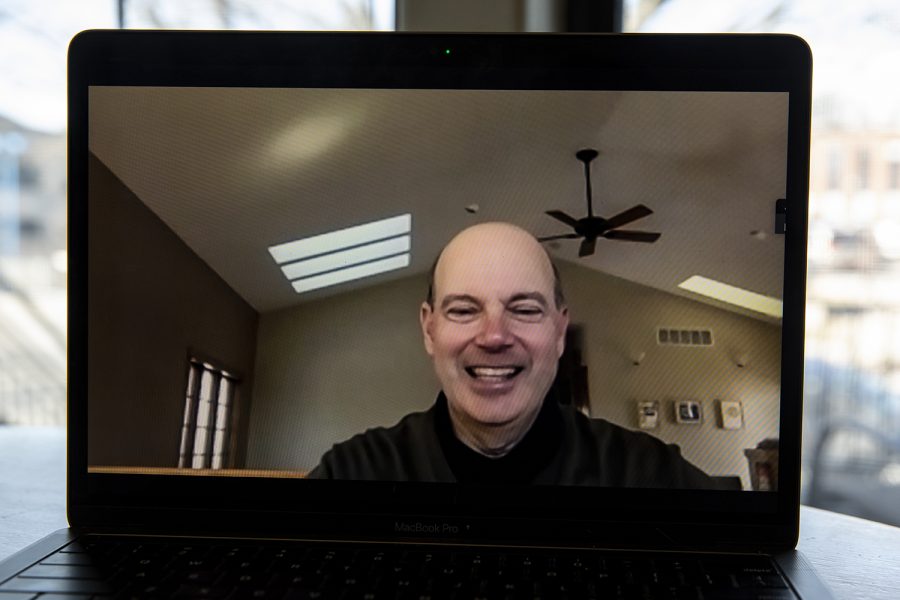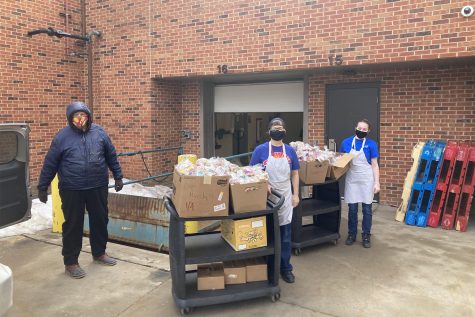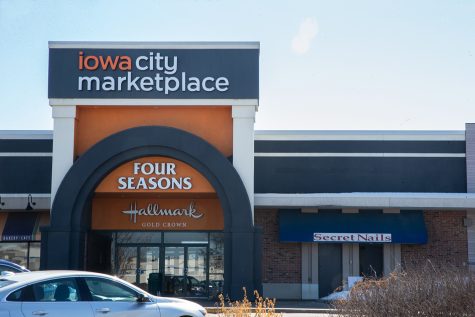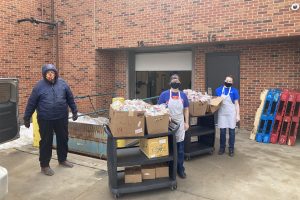Global Education Lecture series fosters collaboration between the UI DEI division and International Programs
The initiative aims to highlight the value of international education interchange and facilitate scholarship and community. The inaugural lecture, “From Pandemic to Promise: International Education in the Wake of COVID-19,” kicked off last month, and is currently seeking more guest speakers.
Associate Provost and Dean of International Programs Russ Ganim poses for a virtual portrait on Tuesday, March 2, 2021.
March 4, 2021
A new collaboration by the University of Iowa Division of Diversity Equity and Inclusion and International Programs is focusing on the value of international education.
“The mission of the new Global Education Lecture Series is to discuss issues facing international educational interchange, engage in shared scholarship, and to be in community,” said the program’s creator Yashwant Prakash Vyas in an email to The Daily Iowan. Vyas is the assistant director of Diversity Resources for the UI’s DEI division.
The initiative kicked off last month with an inaugural lecture given by Associate Provost and Dean of International Programs Russell Ganim.
The lecture series is currently in the process of selecting more speakers and planning future lectures, Vyas said.
Vyas wrote that the pandemic has reiterated the critical component of international education interchange within a Tier 1 research university with international reach.
“If anything, the pandemic has highlighted the need for and importance of international educational interchange through scholars around the world coming together to address the current public health crisis.” Vyas wrote.
Ganim was the first speaker for the series and gave a lecture titled, “From Pandemic to Promise: Rebuilding International Education in the Wake of COVID-19.”
Ganim said the biggest theme of his lecture was that people who work in international education should feel good about the way they adapted to the pandemic in terms of shifting to virtual programming so swiftly.
People who work in education remained resilient, Ganim said. He said the idea that humans are connected internationally persisted even at a time where people were looking inward.
Sometimes that recognition gets overlooked, Ganim said, but he said universities and international education programs moved to online successfully and sustainably.
“The system didn’t break down,” Ganim said. “There were certainly hurdles along the way, and accessibility problems remain. But I think that this shift was herculean on the one hand, but it was also successful.”
The people that worked in global education did not give up hope –– still recognizing the importance of communication across borders, cultures, languages as the best way to move forward, Ganim said, he is optimistic that better days are ahead.
“I saw people from all over the world demonstrating a renewed energy toward global learning,”
Ganim said. “And that energy and that commitment will help propel us forward.”
RELATED: International honors society Phi Beta Delta returns to University of Iowa
The shift may have accelerated the move toward a more virtual future Ganim said, where people are more electronically interconnected and more creative.
“As a result, I think that the pandemic allowed us to kind of germinate some ideas or experiment in ways that maybe we hadn’t conceived of before,” Ganim said.
Yajaira Bolanos, a UI senior, said her in-person study abroad experience in India helped shape her education and she would do it again virtually.
Bolanos said global education is still valuable virtually because of the connectivity and networking opportunities it provides. She is still friends with people she met during her participation in the 2019 India Winterim program.
Bolanos said COVID-19 has made it more normal and easier to maintain these virtual relationships.
“Especially with technology growing so much and COVID I feel like we’ve gotten smarter with the way we handle technology and how we’re building that resiliency with building relationships with other people.”
In an email to The Daily Iowan, UI Vice President of Diversity Equity and Inclusion Liz Tovar said Vyas is working with International Programs to implement this initiative along with other initiatives including the international student affinity graduation and the Alpha Tau Chapter of Phi Beta Delta Honor Society for International Scholars.
“UI has a global reach and international educational interchange is a vital part of our mission.” Tovar wrote. “These initiatives are geared towards supporting members of our university community engaged in international educational interchange – to ensure that they thrive and are able to achieve their full potentials.”




















